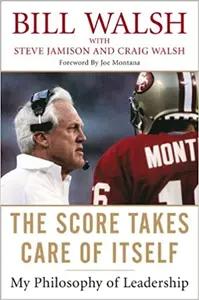Cognitive Surplus: How Technology Makes Consumers into Collaborators
By Clay Shirky
Category
TechnologyRecommended by
"Cognitive Surplus" by Clay Shirky explores the concept of cognitive surplus – the free time and creative potential of individuals in today's connected world. In this thought-provoking book, Shirky challenges the notion that technology has made us passive consumers, by illustrating how people are using their spare time to engage in collaborative projects and contribute to the creation of valuable and meaningful content.
Shirky showcases various examples, from crowdsourcing to online communities, demonstrating how individuals are harnessing their cognitive surplus to solve problems, create innovative projects, and effect positive change in society. He highlights the immense potential of collaborative endeavors, emphasizing how collective intelligence can drive collective action with far-reaching consequences.
The book delves into the historical context of cognitive surplus, tracing the evolution of leisure time and how it has been transformed in the digital age. Shirky argues that, rather than being squandered on mindless activities, people now have the capacity to leverage their spare time for greater purposes, fostering social interactions, and making a tangible impact.
Drawing on research and real-life examples, Shirky explores the motivations behind people's participation in collaborative projects, discussing the various psychological, social, and economic factors at play. From open-source software development to citizen journalism, he highlights the power of collaboration and cooperation, revealing how collective efforts can lead to valuable outcomes that benefit individuals and society as a whole.
"Cognitive Surplus" offers a thought-provoking perspective on the potential of individuals and communities in the digital age. Shirky's insightful analysis challenges conventional notions about leisure time and provides inspiration for readers to explore and leverage their own cognitive surplus to create a better world.
Shirky showcases various examples, from crowdsourcing to online communities, demonstrating how individuals are harnessing their cognitive surplus to solve problems, create innovative projects, and effect positive change in society. He highlights the immense potential of collaborative endeavors, emphasizing how collective intelligence can drive collective action with far-reaching consequences.
The book delves into the historical context of cognitive surplus, tracing the evolution of leisure time and how it has been transformed in the digital age. Shirky argues that, rather than being squandered on mindless activities, people now have the capacity to leverage their spare time for greater purposes, fostering social interactions, and making a tangible impact.
Drawing on research and real-life examples, Shirky explores the motivations behind people's participation in collaborative projects, discussing the various psychological, social, and economic factors at play. From open-source software development to citizen journalism, he highlights the power of collaboration and cooperation, revealing how collective efforts can lead to valuable outcomes that benefit individuals and society as a whole.
"Cognitive Surplus" offers a thought-provoking perspective on the potential of individuals and communities in the digital age. Shirky's insightful analysis challenges conventional notions about leisure time and provides inspiration for readers to explore and leverage their own cognitive surplus to create a better world.
Share This Book 📚
More Books in Technology

The Hard Thing About Hard Things
Ben Horowitz

Zero to One
Peter Thiel

The Innovators Dilemma
Clayton Christensen

The Lean Startup
Eric Reis

The Sovereign Individual
James Dale Davidson & William Rees-Mogg

High Growth Handbook
Elad Gil

Blitzscaling
Reid Hoffman

American Kingpin
Nick Bilton

Becoming Steve Jobs
Brent Schlender

Behind the Cloud
Marc Benioff

The Internet of Money Volume 1
Andreas Antonopolous

The Network State
Balaji Srinivasan

AI Superpowers
Kai-Fu Lee

How Innovation Works
Matt Ridley

New Power
Jeremy Heimans

Read Write Own
Chris Dixon

Super Pumped
Mike Isaac

The Airbnb Story
Leigh Gallagher

The Dream Machine
M. Mitchell Waldrop

The Innovators
Walter Isaacson

The Little Bitcoin Book
Bitcoin Collective

The Second Machine Age
Erik Brynjolfsson

The Seventh Sense
Joshua Ramo

Virtual Society
Herman Narula

Whole Earth Discipline
Stewart Brand

Competing in the Age of AI
Marco Iansiti

Dealers of Lightning
Michael A. Hiltzik

Digital Gold
Nathaniel Popper

Don't Make Me Think
Steve Krug

Empires of Light
Jill Jonnes
Popular Books Recommended by Great Minds 📚

Mindset
Carol Dweck

Security Analysis
Benjamin Graham

Loonshots
Safi Bahcall

The Innovators Dilemma
Clayton Christensen

How to Change Your Mind
Michael Pollan

The Ride of a Lifetime
Bob Iger

Bad Blood
John Carreyrou

The Hitchhikers Guide to the Galaxy
Douglas Adams

The Rational Optimist
Matt Ridley

Surely You're Joking Mr. Feynman
Richard Feynman

Wanting
Luke Burgis

The Courage To Be Disliked
Ichiro Kishimi

Meditations
Marcus Aurelius

Destined For War
Graham Allison

The Checklist Manifesto
Atul Gawande

Becoming Steve Jobs
Brent Schlender

Snow Crash
Neal Stephenson

Crossing the Chasm
Geoffrey Moore

The Score Takes Care of Itself
Bill Walsh

Red Notice
Bill Browder

Against The Gods
Peter Bernstein

The Hard Thing About Hard Things
Ben Horowitz

Scale
Geoffrey West

Billion Dollar Whale
Tom Wright

Antifragile
Nassim Nicholas Taleb

The Internet of Money Volume 1
Andreas Antonopolous

The Power of Habit
Charles Duhigg

The Rise And Fall Of American Growth
Robert J. Gordon

The Intelligent Investor
Benjamin Graham

Masters of Doom
David Kushner
